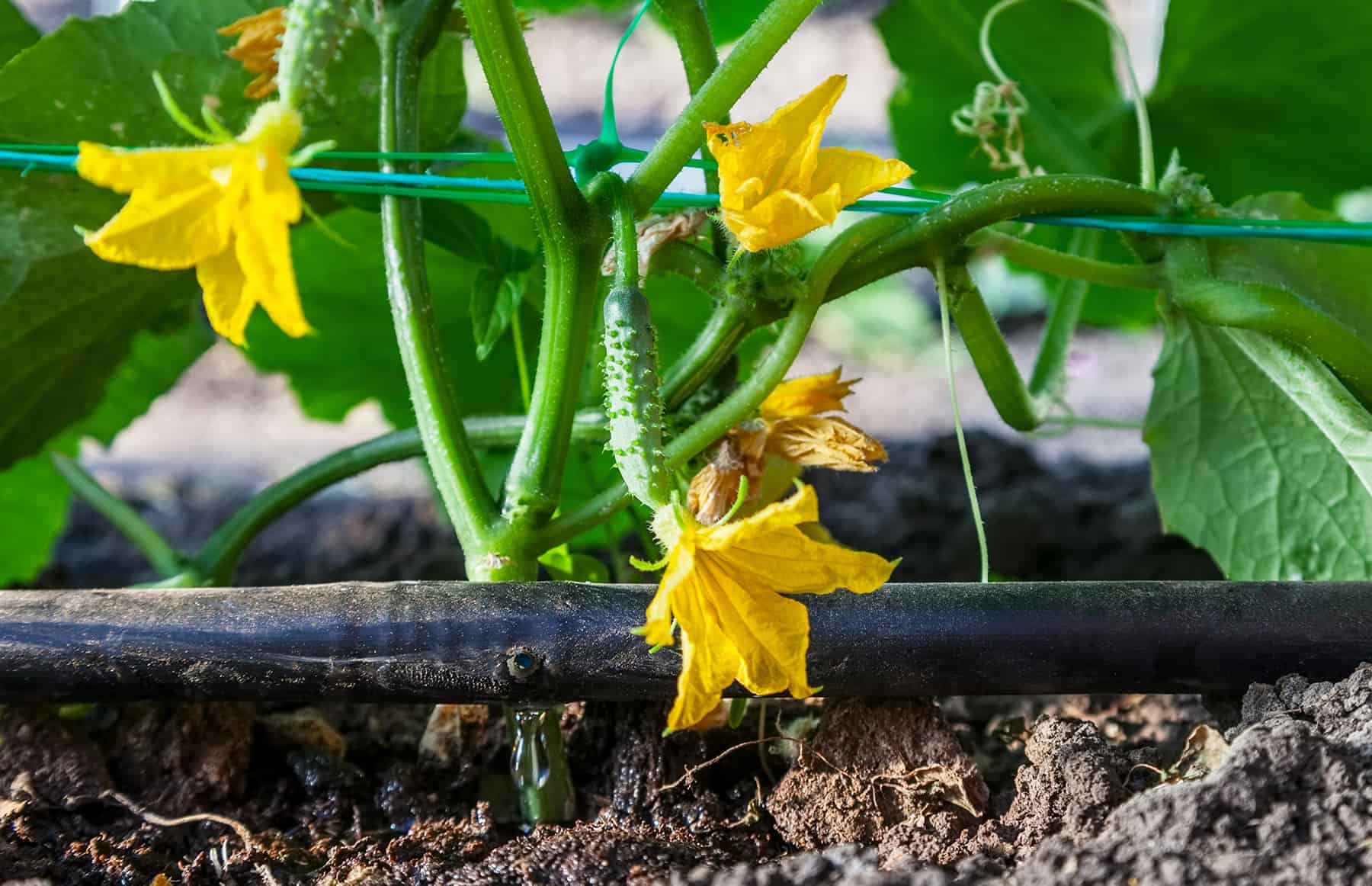[ad_1]
Drip irrigation, aka micro irrigation, delivers water slowly to the underside of crops on the soil line. With a 90% effectivity, water will get to the place it’s wished with little or no waste.
It’s said that water is our most treasured helpful useful resource. And on this era of native climate change with file heat and drought, conserving water is important. Rising greens and fruit requires a serious amount of water and whereas your Arborvitae and Rhododendrons may survive 3 weeks with out rainfall, your tomato crops, lettuces, and blueberries will not.
Nevertheless many gardeners waste water with improper watering methods: watering when it’s too scorching; when the photo voltaic is simply too extreme; getting foliage moist (moreover a sickness contributor); watering too fast; not mulching; and totally different errors. Drip irrigation can resolve a lot of these points, notably in arid and drought-prone areas the place water may be briefly present.
Drip irrigation may be utilized for any plant in your yard or yard, along with timber, nevertheless for this textual content, we’ll focus in your vegetable yard.
How drip irrigation works
Drip irrigation works by placing water slowly and immediately into the soil—really “dripping” it from small water emitters which may be positioned at each plant or from an emitter line that is snaked throughout the planted yard mattress. Drip may also be an excellent method for watering sloped and terraced gardens because of the gradual cost of watering means it is further extra prone to soak in sooner than it runs off or evaporates.
Benefits of drip irrigation
- Makes use of a lot much less water than a yard hose or watering can.
- 90% effectivity – solely 10% of water is wasted vs as extreme as 50% with sprinkler applications and totally different watering methods.
- Easy to place in.
- Customizable for any yard.
- Water is utilized to the premise zone solely, reducing the specter of sickness.
- A lot much less weed progress, since solely the purpose plant is watered.
The three parts of a drip irrigation system
- The Head: along with the water provide, system administration valve, filter, and stress regulator.
- Distribution system: the hose or pipes by the use of which the water flows.
- Emitters: devices inserted into the hose or pipes to ship the water to your crops.
The top consists of a water provide with a valve, a filter to remove top quality particles from the water so the emitters obtained’t clog, and a stress regulator to cut back the water stress to under 25 psi (most metropolis applications are between 25-60 psi).
The distribution system is the pipes or hoses that carry the water to the crops. Pipes are usually made out of PVC or black polyethylene. Moreover consists of connectors to adapt the hose or pipes to the emitters.
Emitters are basically essentially the most important part of your drip irrigation system. Emitters can be found many alternative designs and are normally categorized as stage provide, linear, or micro spray.
- Degree provide emitters are positioned subsequent to the plant and ship water to its base. They’re the very best and least pricey. That’s usually as simple as a small hole punched inside the pipe or hose.
- Linear emitters are set inside the tubing by the producer and are best utilized in gardens the place the construction doesn’t change, akin to in a perennial yard to water shrubs.
- Micro-spray emitters spray a top quality stream of water on the plant’s base. These may be put in immediately inside the tubing or on stands above the underside.
Is organising a drip irrigation system refined?
Drip irrigation inside the vegetable yard doesn’t have to be a eternal arrange till you’re using the square-foot gardening method. Assuming you’re coaching crop rotation, you’ll be altering what and the place you plant yearly. Since subsequent 12 months’s tomatoes obtained’t be in exactly the equivalent spot as this 12 months’s, your drip irrigation system must be modified each season. So for the vegetable yard, be economical alongside along with your provides and keep away from a rigid configuration.
Drip irrigation applications may be as simple or as refined as you see match. Nevertheless planning is important: sooner than designing your system, you’ll must know the water requirements of your crops and the way one can measurement the design to ship the water the place it’s wished with adequate stress. See the property file beneath and the flicks to be taught further.
Drip Irrigation property to get you started:
Be part of our electronic message file and certainly not miss a model new submit on gardening!
[ad_2]
